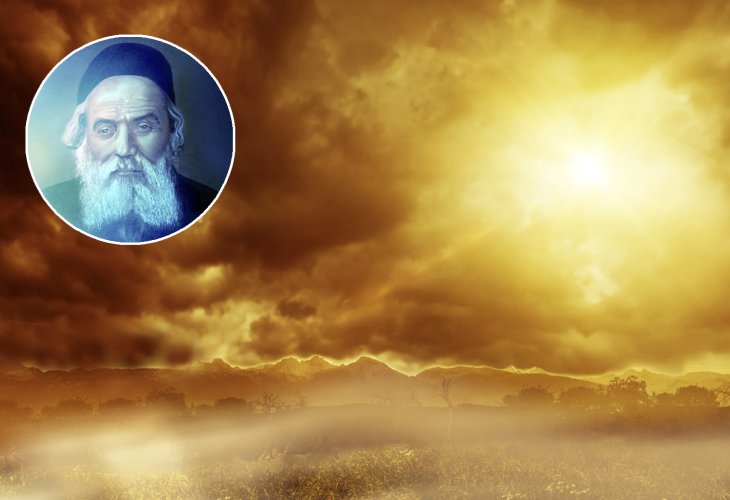End of Days
Awaiting the Messiah: The Chofetz Chaim’s Roadmap
Why not to despair, how to strengthen faith, and the daily actions that hasten redemption
 (Photo: shutterstock)
(Photo: shutterstock)The Chofetz Chaim spoke often and at length about a felt, day-to-day faith in the coming of Mashiach. Regarding the apparent delay, he warned against losing heart: “Far be it from us to despair because of the delay — especially since the prophet already told us there would be a delay: Even if he tarries, wait for him, for he will surely come.”
He would add that every hardship any Jew experiences is part of the broader exile and should be “counted in the ledger.” We must pray for Mashiach to come — “and when he comes, the troubles will fall away on their own.”
“He Will Not Forget a Single Jew”
The Chofetz Chaim said: “When our Righteous Mashiach arrives, he will not forget a single Jew — even one person alone in a remote, far-flung place he will bring back.” He compared the end of our exile to the end of the Egyptian exile: “As it is written, As in the days when you came out of Egypt, I will show you wonders.”
Gog and Magog as a War of Faith
It is known from the Chofetz Chaim that the essence and danger of the war of Gog and Magog is a war of faith versus heresy during which each soul will be tested with difficult trials of faith. Only a soul that stands firm, spiritually unshaken by fierce winds, will be “a daughter of the King” — to behold the pleasantness of Hashem when He returns to Zion with mercy.
Rabbi Shalom Schwadron related in the name of the mashgiach Rabbi Yechezkel Levenstein that he heard from the Chofetz Chaim that there would be a second war before the last, that would make World War I look like a game. Listeners trembled. Rabbi Schwadron asked the mashgiach, why speak of such difficult things? Shouldn’t we pray that such decrees not come, rather than say them?
Rabbi Yechezkel Levenstein, aflame like a pillar of fire, replied: “You misunderstood the Chofetz Chaim. He was speaking mainly about darkness in faith. The eclipse of faith during World War I was child’s play compared to World War II — and the faith-darkness of the third war will make all earlier darkness look like a game. We are living in the midst of that war now. Indeed, they also send some rifles, but that is not the essence.” (Sheal Avicha Veyagedcha)
Why Negativity Swells Before Redemption
The Chofetz Chaim taught that before the final redemption, forces of impurity surge. Why? “That is nature: just before its end, a thing gathers its last strength — like a candle that flares before going out, like the darkest moment before dawn.”
He would also say: “In ordinary wars you cannot know mid-battle who will win, but in this war we know the end with certainty: I will remove the spirit of impurity from the land, and Hashem will be King over all the earth.” (From a letter to a questioner in Israel; printed in Yalkut Ma’amarim u’Michtavim.)
What Should We Do? Five Practical Steps from the Chafetz Chaim
1) Ask — Don’t Be Silent
“Yes, the Messiah will come in his time,” the Chofetz Chaim said, “but we are not allowed to be silent.” It is our duty to pray and ask that he come soon. “The problem,” he added with sadness, “is that many of us forget how vital the Mashiach and redemption are. We don’t truly expect him, and so the redemption is delayed.”
2) Read Bereishit (Genesis) Regularly
Rabbi Chaim Yitzchak Popka, who long served the Chofetz Chaim in Radin, testified that he saw him more than once re-reading the Creation story, from the beginning of the parsha through Vayechulu, to strengthen living faith in the Creator. Rabbi Elchanan Wasserman said: “We live in a time that requires strategies to strengthen faith.”
3) Strengthen Core Beliefs Daily
Rabbi Shachne Zohn writes (Kuntres Kavod HaTorah) that the Chafetz Chaim advised reciting the Thirteen Principles of Faith every day.
4) Actively Anticipate Salvation
It is told that the Chofetz Chaim prepared a special Shabbat coat with which to greet Mashiach, and from time to time he would don it and sit waiting. He even kept a small packed bag with essential items so that, when Mashiach comes, he could leave at once for the Land of Israel.
When he heard a sudden noise outside, he would start and ask, “What is that sound? Perhaps Mashiach has come!” When someone offered to purchase a fine apartment for him near the shul — an easy purchase for him, he declined: “Why buy a house in the Diaspora when Mashiach is coming soon? In Jerusalem, I hope, I will have a home.”
5) Torah Study & Acts of Kindness
The Brisker Rav related that people sought the Chofetz Chaim’s advice for protection from troubles, but the Talmud already asked Rabbi Eliezer the Great: What should a person do to be saved from the birth pangs of the Mashiach? He answered to engage in Torah and acts of kindness. The Chofetz Chaim said: “If you gathered every Acharon — even all the Rishonim, Geonim, Amoraim, and Tannaim, could anyone offer better counsel than Rabbi Eliezer the Great? What do they want from me, Yisrael Meir, to give them another idea?!”
Who Was the Chofetz Chaim?
Rabbi Yisrael Meir HaKohen of Radin (11 Shevat 5598 / Feb 6, 1838 – 24 Elul 5693 / Sept 15, 1933), known as the Chofetz Chaim after his famed sefer, was one of the leading sages of the generation before the Holocaust. He founded and headed the Radin Yeshiva and authored foundational works including Mishnah Berurah and Chofetz Chaim.

